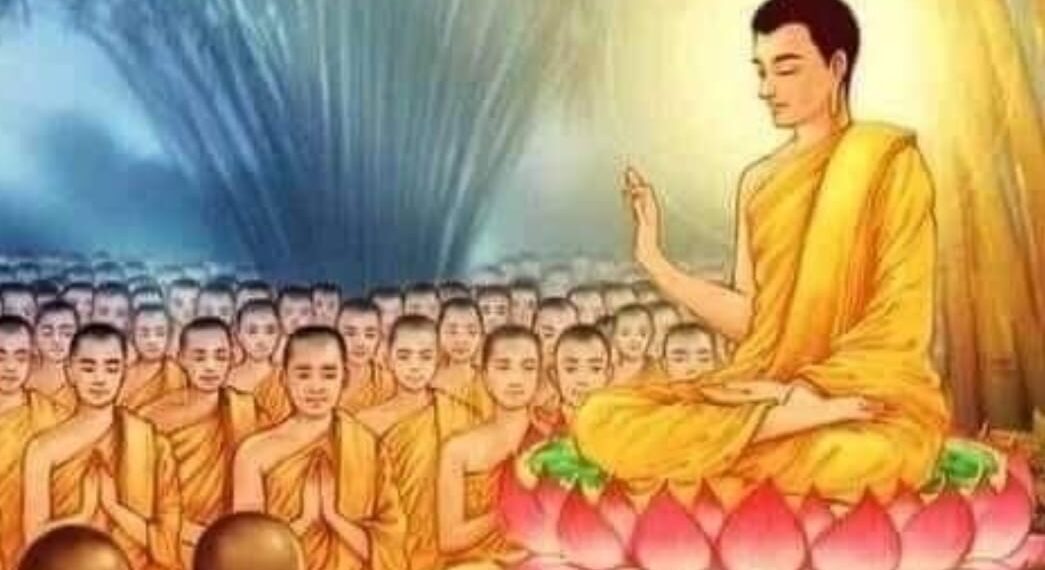Vipul Agarwal, Delhi, 19 March 2024
If Hanumana spent his entire life without meeting Rama in Kishkinda, we would simply say what a waste of life. However, to the contemporary residents of Kishkinda, that may appear to be quite normal. Because they are not aware of the potential of Hanumana and therefore consider life without Rama to be normal. Probably that’s what happens with most of us. We spend our lives in such a routine way. We hardly realise our potential ever.
Fears, comfort, and pleasures take away almost the whole of our lives. We feel so disconnected from our soul that we somehow develop a strong identification with the body and mind. Such an identification results in a strong desire to protect the body, our ideas, and our beliefs. Such a strong identification brings a natural survival instinct which in turn brings strong motivation to work hard to get a good job, promotions, power, and position. However, it also makes our world view quite unidimensional. Almost all of our decisions are based on running away from fear and seeking comforts and pleasures.
I often wonder how did Rama made the decision to go to the forest so easily. How did Krishna make the decision to leave Mathura so easily? How Lord Shiva left everything so easily? In fact, how did Gautama take the decision to leave the kingdom and his family so easily? How did freedom fighter Aurobindo take the decision to leave active participation in the freedom struggle so easily? Probably there is one common factor between Rama, Krishna, Shiva, Buddha, Aurobindo and many more who take decisions that appear quite extraordinary. The common factor is that all of them have some inner connection to the divine that guides their life.

Either they have been aware since childhood and out of such awareness, they have examined their fears, comforts, and pleasures and realised their temporariness. Like Buddha, they have asked questions about the permanence of life, health, wealth, and every other material possession. Due to this awareness, they never made these temporary things the centre of their lives. Or they connected to the divine so strongly that these temporary things never attracted them.
One of the most beautiful manifestations of that connection with the divine is that it makes life full of love and compassion. So when Rama goes to the forest, he does not develop any ill will against any person including Kaikeyi and Bharata. He is full of love even for those who are responsible for sending him out of Ayodhya. Probably because of two reasons. Firstly, he is so connected to the divine that he understands very well the futility of pleasures and comforts and that’s why knows very well that comforts and pleasures do not make life meaningful. He understands that fulfillment comes with exploration and any exploration, in the beginning, may appear to be unpleasant and uncomfortable. But he puts more premium on the exploration of life rather than the comforts and pleasures. Secondly, he realises that his fellow human beings are suffering from an illusion. They are not able to see the reality and that’s why they are making such decisions out of ignorance. That’s why he has compassion and love for these people because they don’t know what they are doing and how they are harming themselves psychologically.
Since we have not been so aware since our childhood, we have developed many habit patterns, both conscious and unconscious, in and around the desire to avoid fears and have certain comforts and pleasures. These habit patterns are so deep and hidden in the depth of our being that it’s very difficult to overcome them. When we try to connect to the divine, these habit patterns attack with their full force. We become uncomfortable since they operate in the form of unpleasant sensations in our bodies. Sometimes, they make us full of euphoria, and the desire for such euphoria disconnects us from the divine further.
If a person who is used to getting up late from the bed is asked to get up early and look at the sun and have a walk in nature, in the beginning it may appear to be the most difficult and uncomfortable task. He will undertake such a task in two situations. First, when he falls ill and the doctor advises him to do so. Second, when he has an inner urge to explore the nature. That’s what happens with the ones having fears, comforts, and pleasures at the centre of their lives. Either they get some shock from life and then wake up to recentre their lives around the divine. Or they develop some inner urge to know their true nature and connect to the same. Once a person tastes the joy of morning nature, it is easier to break off the old habit patterns. It’s a constant battle still since the old habit patterns lie deep in the unconscious and keep coming back disguised in different forms.
As a person starts connecting to the divine, he also connects to others since that divine is present in all beings. In fact, not only in the beings but also in everything. One can explore the interplay of the Purusha and Prakriti everywhere. Different phenomena in this world demonstrate the interplay. The weather, rivers, trees, mountains, and the human beings. Once we observe human beings without reacting, it is such a joy to watch different emotions the human beings go through. That brings love and compassion in life. We can easily differentiate between the behaviour of a connected being and a disconnected one. That fills us with compassion and love. We feel like helping the beings who are deprived of that eternal joy due to their ignorance. That makes life so complete, meaningful, and full of joy. Because the joy is always inside.







